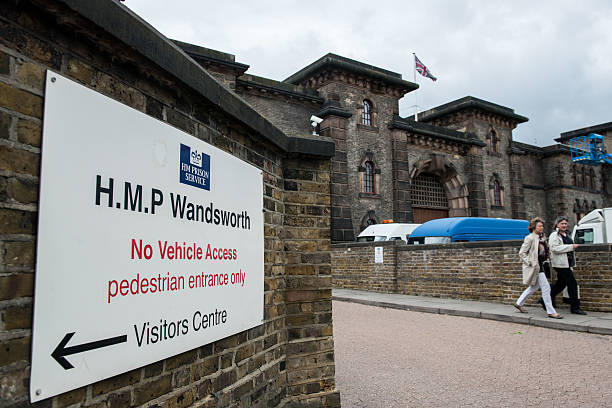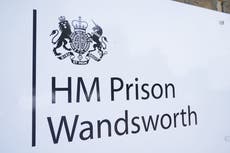From collapsing schools to insecure prisons, the British public isn’t getting the services it deserves
Editorial: Even with times as hard as this, we should not have to put up with, say, four out of 10 prison officers not attending their scheduled shifts

On the day that Daniel Khalife escaped from HMP Wandsworth, there were 125 prison officers on shift, but some 80 of their colleagues did not turn up for duty. This stunning fact has only come to light through the diligent efforts of the constituency MP, Rosena Allin-Khan, to extract it from the Ministry of Justice.
As Ms Allin-Khan puts it, it “beggars belief that he was even allowed to work in the kitchen. The government need to explain themselves”. Quite. The MP also claims that one day last December only eight officers were around to oversee the 1,500 or so inmates in the prison, though the authorities haven’t confirmed this.
Remarkable – and shameful – as the situation is, the minister concerned, Damian Hinds, seems unabashed. Mr Hinds says that “overall staffing levels were above the minimum staffing level required by the prison’s regime management plan to deliver a safe and decent regime”. Really, minister? So safe that Khalife managed to strap himself under a lorry? Safe enough for the prisoners to have even minimal time outside their cells? Sufficient to contain the drugs epidemic?
To be fair and just to Mr Hinds, he adds that the kitchen, whence Khalife fled, and the gatehouse were fully staffed, but that only begs further questions about appropriate staffing levels in an establishment where some highly dangerous individuals are held.
Mr Hinds says that staffing levels were not a contributory factor in the escape. That hypothetical is impossible to prove either way, but a 39 per cent absentee rate is indefensible in any case. Indeed, the absence of so many officers may itself be an indicator of the stresses created in trying to run a jail with inadequate resources. The place is known to be squalid and overcrowded – hardly an incentive to work there.
The situation at Wandsworth speaks to a wider malaise in society, and a feeling of crisis in our public services. Only this week, NHS waiting lists rose again to such a point that the prime minister had to concede that his pledge to get them down this year will not be fulfilled. Rishi Sunak blames the industrial action which has disrupted patient care for almost a year, which is a perfectly fair point. However, Mr Sunak doesn’t seem to realise that one of his jobs is to make sure that conditions and staffing levels in our hospitals don’t deteriorate to the point where strikes become inevitable – and when they do, then they need to be settled swiftly and fairly.
Nor is there much sign that the sense of national malaise is going to lift. The immediate emergency may have passed, but our schools are continuing to crumble, and no one seems to know when they can all be deemed fit for purpose. The same goes, a fortiori, for other buildings where a concrete audit hasn’t even begun.
Everywhere one looks there are failures. The Passport Office is only now emerging from its absurdly long delays in processing documents. HMRC shut its helplines down for three months. The national air traffic control system collapsed on the last bank holiday weekend. The City of Birmingham has gone bust. And as for the railways…
The public isn’t getting the service it expects or deserves. There are personnel shortfalls everywhere, which means that conscientious public servants are placed under undue strain – inflation erodes their wages and makes services harder to fund, and poor morale looks endemic. The strikes that have made life so difficult are as much a symptom as a cause of this malaise.
Much of the problem can be accounted for by our sluggish economy, which in turn has been damaged by Brexit and the debts run up (necessarily) during the pandemic. Yet there is more to the inexorable decline in the public “space” even than that – a general lack of status in many parts of the public sector and a weakness in the kind of leadership that can motivate people and design incentives to reward exceptional performance.
Even with times as hard as this, we should not have to put up with, say, four out of 10 prison officers not attending their scheduled shifts. We can do better than that.



Join our commenting forum
Join thought-provoking conversations, follow other Independent readers and see their replies
Comments